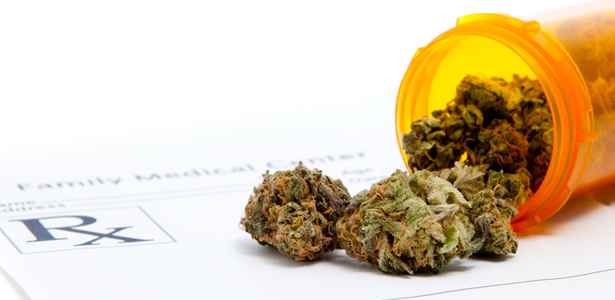
Past research has indicated that cannabis may be a promising treatment option for a number of different physical and mental health conditions, ranging from post-traumatic stress disorder to disabling seizures. Now, a new study published in the Journal of Neuroscience suggests that depression could soon be added to that list.
Neuroscientists from the University of Buffalo’s Research Institute on Addictions found that endocannabinoids — brain chemicals that activate the same receptors as THC, an active compound in marijuana — may be helpful in treating depression that results from chronic stress.
In studies on rats, the researchers found that chronic stress reduced the production of endocannabinoids, which affect cognitive, emotional and behavioral processes, and have been linked to reduced feelings of pain and anxiety, increases in appetite, and overall feelings of well-being. The body naturally produces these compounds, which are similar to the chemicals found in cannabis. Reduction of endocannabinoid production may partially explain the strong link between chronic stress and depression.
Next, the research team administered marijuana cannabinoids to the rats, finding it to be an effective way to restore endocannabinoid levels in their brains — possibly, thereby, alleviating some symptoms of depression.
“Using compounds derived from cannabis — marijuana — to restore normal endocannabinoid function could potentially help stabilize moods and ease depression,” lead researcher Dr. Samir Haj-Dahmane said in a university press release.
Since the research is still preliminary and limited to animal studies at this point, it’s not yet possible to know whether the findings will translate to humans. However, recent evidence on the effects of marijuana on symptoms of post-traumatic stress disorder appears to bolster these new findings, since both disorders involve the way the brain responds to stress.

This figure shows the areas of the brain with high concentrations of cannabinoid receptors, and their respective functions.
Brain imaging studies have revealed irregular cannabinoid receptors in people with PTSD, indicating a potential target for drug therapy. And a study published last year in the journal Neuropsychopharmacology found that synthetic cannabinoids were able to prevent the development of some of the behavioral and physiological symptoms of PTSD in rats by triggering changes in brain regions associated with traumatic memories. Importantly, these effects seem to translate into symptom-relief: Another study published last year found that patients who smoked cannabis experienced a 75 percent reduction in PTSD symptoms. Similarly, there is also a great deal of anecdotal evidence suggesting that cannabis can effectively reduce PTSD symptoms.
It’s important to note, however, that the relationship between marijuana and depression is complex, and the therapeutic use of cannabis in this context is not well understood. For instance, some evidence suggests that, in low doses, cannabis can alleviate depressive symptoms, but in high doses it could make them worse. More research is needed to determine if — and how — marijuana might be used in a clinical context to treat patients with depression.
Of course, from a broader perspective, medical marijuana remains a controversial issue. Although 23 states and the District of Columbia have approved its use to provide relief for health problems such as glaucoma, nerve pain, epilepsy, multiple sclerosis and nausea from chemotherapy, some people are concerned that medical use of marijuana may normalize attitudes about the drug and lead people — especially youth — to believe it is completely safe. Preliminary evidence, however, suggests that legalizing medical marijuana has not encouraged its use among young people.
